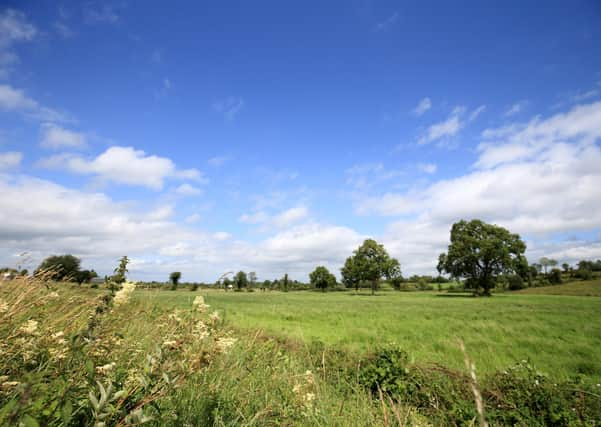Get ready for cross compliance inspections starting next week


The Department of Agriculture, Environment and Rural Affairs (DAERA) Minister, Edwin Poots, MLA had paused the majority of on-farm inspections in line with COVID-19 restrictions but as Northern Ireland moves out of full lockdown the Minister has since announced that some inspections will re-start and this includes the NIEA cross-compliance inspections. DAERA/NIEA must conduct certain inspections to fulfil their obligations and allow payments to be made to farmers.
The Ulster Farmers’ Union (UFU) recently met with NIEA to discuss their plans and protocols for their routine cross-compliance inspections this year.
Advertisement
Advertisement
Routine inspections require NIEA to select a number of farms who receive Basic Payment to check they are complying with the Nutrient Action Programme Regulations and other environmental requirements. 25 percent of the sample are randomly selected while the remainder are selected using risk-based criteria.
Understandably due to COVID-19, procedures have changed and the number of inspections carried out during 2020 will be reduced to help facilitate the changes. Contact between the inspectors and farmers will be completely minimised with both parties required to maintain the two metres social distance.
Another key change will be that records will have to be submitted to NIEA rather than checked in the home/farm office as had previously been the case.
As usual, farmers will be notified in advance of an inspection via letter and this will be followed up with a phone call. NIEA staff will outline what they will be checking and the new protocols for conducting inspections.
Advertisement
Advertisement
During routine cross-compliance inspections NIEA will check waterways for signs of pollution but farmers are reminded that if NIEA directly receive reports of pollution this can also trigger further cross-compliance inspections in addition to those farms where routine checks are carried out.
The on-going warm and dry weather has resulted in lower flows in our rivers and streams making them more susceptible to nutrients and pollution incidents. It is vital that farmers and contractors spreading and managing slurry adhere to the Nutrients Action Programme (NAP) regulations and ensure that they keep away from waterways. The UFU also advises farmers to check that slurry tanks, channels and silos are all in order with no potential for leaks to ensure contamination of waterways is avoided. It is in everyone’s interest to ensure that waterways are protected and to avoid costly fines and penalties being applied to area payments.
Farmers are also reminded that under cross-compliance rules, hedges must not be cut between 1 March and 31 August unless there are health and safety issues. Birds are still nesting and it is an offence to disturb nesting birds. Good hedges provide food (flowers) from spring to autumn, shelter and act as corridors for insects and wildlife to move through the landscape. Neat and tidy intensively managed hedges offer little benefits for wildlife, birds, pollinators or shelter for livestock. DAERA have received reports of hedge cutting in recent weeks across Northern Ireland and this could result in penalties being applied.
If you are a UFU member and receive notification of an inspection or you want to discuss the various rules and regulations, you can contact UFU Headquarters or your local group office who will then put you in contact with a technical officer for further advice including how to prepare for an inspection and assistance with record keeping.